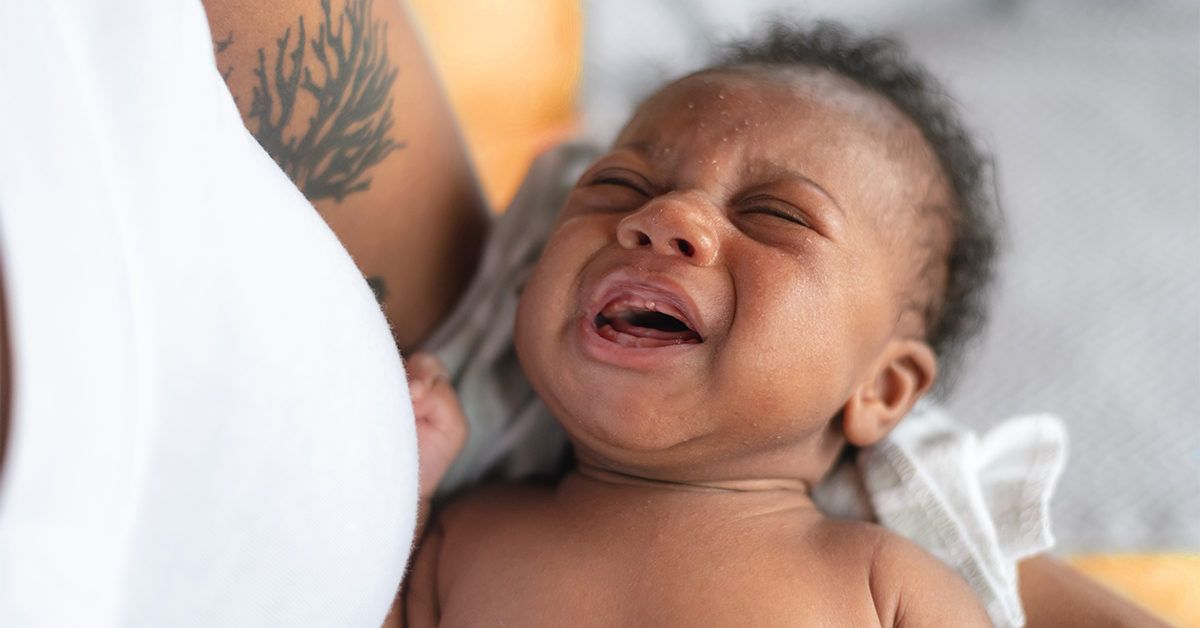Babies cry as a form of instinctive communication. It’s their way of letting their parents know that they are hungry, thirsty, tired, lonely, or in pain. Crying is a normal part of a baby’s development, but excessive crying can cause various effects on both the baby and the parents. In this article, we will explore what happens when a baby cries too much and what parents can do to soothe their little ones.
1. Increased Stress Levels and Exhaustion
Prolonged crying can cause a baby’s stress levels to increase. This can lead to a state of exhaustion and a decrease in their oxygen levels. It is essential for parents to respond to their baby’s cries promptly to prevent them from becoming overwhelmed and exhausted.
2. Impact on Baby’s Mood and Behavior
Excessive crying in infants has been linked to an increased risk of mood and behavioral problems. Studies conducted by the National Institutes of Health have shown that babies who cry excessively are more likely to develop behavioral issues, hyperactivity, and mood disorders later in life. Therefore, it is crucial for parents to address their baby’s crying and provide the necessary comfort and support.

Credit: www.healthline.com
3. Parental Stress and Mental Health
Dealing with a constantly crying baby can take a toll on parents’ mental health. It can lead to increased stress, anxiety, and feelings of helplessness. It is important for parents to seek support and take breaks if needed. Remember, you are not alone, and there are resources available to help you through this challenging phase.
4. Possible Causes of Excessive Crying
Excessive crying can be caused by various factors such as hunger, discomfort, illness, colic, overstimulation, or boredom. It is essential for parents to try to identify the underlying cause of their baby’s excessive crying in order to address it effectively. Consulting with a healthcare professional can provide valuable insights and guidance.
5. Soothing Techniques for a Crying Baby
When faced with a crying baby, there are several techniques that parents can try to provide comfort and calmness. These include:
- Rocking or gently swaying the baby
- Singing or playing soft music
- Providing a pacifier or teething toy
- Creating a soothing environment with dim lights and white noise
- Offering a warm bath
- Snuggling and providing gentle touch
- Feeding or changing diapers if necessary
Each baby is unique, so it may take some trial and error to find the techniques that work best for your little one. Remember to trust your instincts and provide a loving and nurturing environment for your baby to thrive.

Credit: healthtalk.unchealthcare.org
Frequently Asked Questions For What Happens When Baby Cries Too Much
What Happens If My Baby Cries Too Long?
Excessive crying in babies can lead to increased stress levels and exhaustion. It may cause a decrease in oxygen levels and can have an impact on their overall well-being. It is important to address the needs of a crying baby promptly and provide soothing techniques to help calm them.
Is It Unhealthy For A Baby To Cry A Lot?
Frequent crying doesn’t harm infant health but can stress both baby and caregiver. Addressing needs promptly is beneficial.
How Long Can You Let A Baby Cry?
It’s important to respond to your baby’s crying, but if you feel overwhelmed, take a short break.
What Happens To The Baby If You Cry Too Much?
Crying too much can cause stress and exhaustion, leading to decreased oxygen levels in the baby.
Conclusion
Excessive crying in babies can have various effects on both the baby and the parents. It is essential for parents to respond to their baby’s cries promptly and provide comfort and support. Excessive crying can lead to increased stress levels and exhaustion in babies, as well as potential mood and behavior problems later in life. It is crucial for parents to prioritize their mental health and seek support when needed. By understanding and addressing the underlying causes of excessive crying, parents can soothe their babies and create a peaceful and loving environment for their little ones to grow and thrive.
